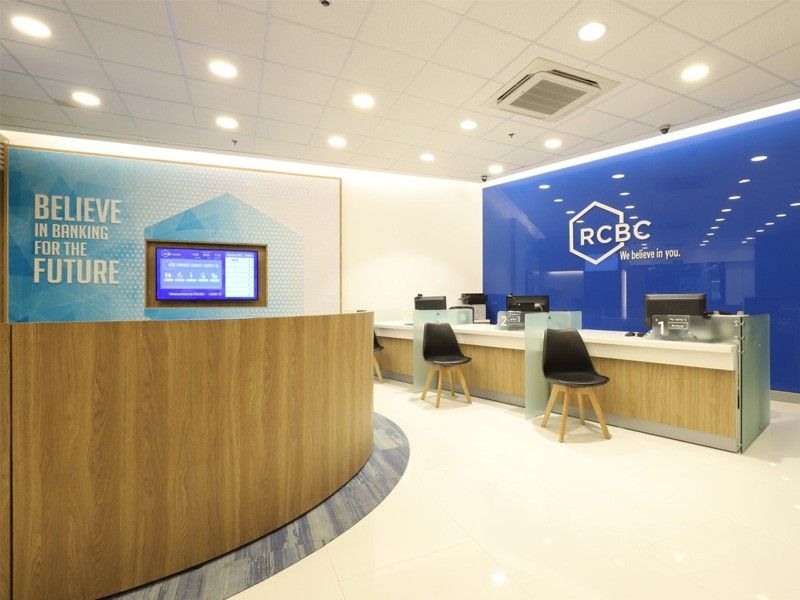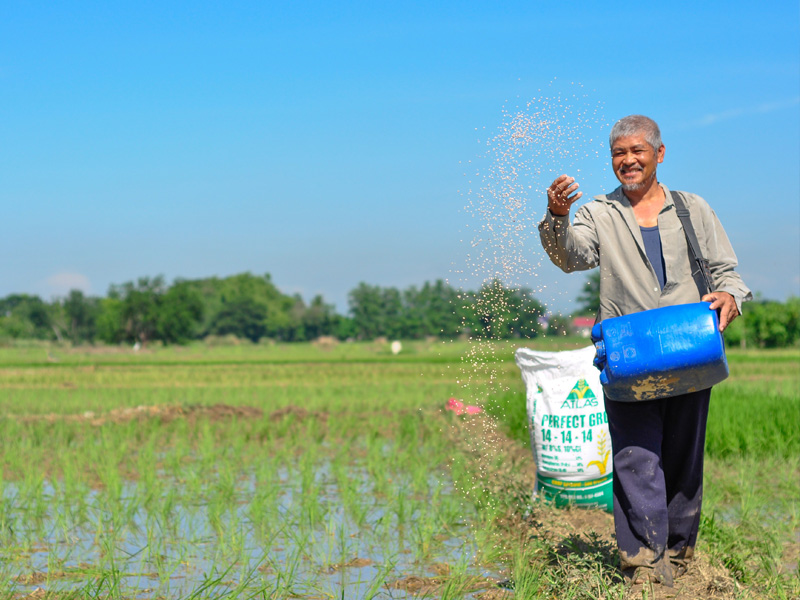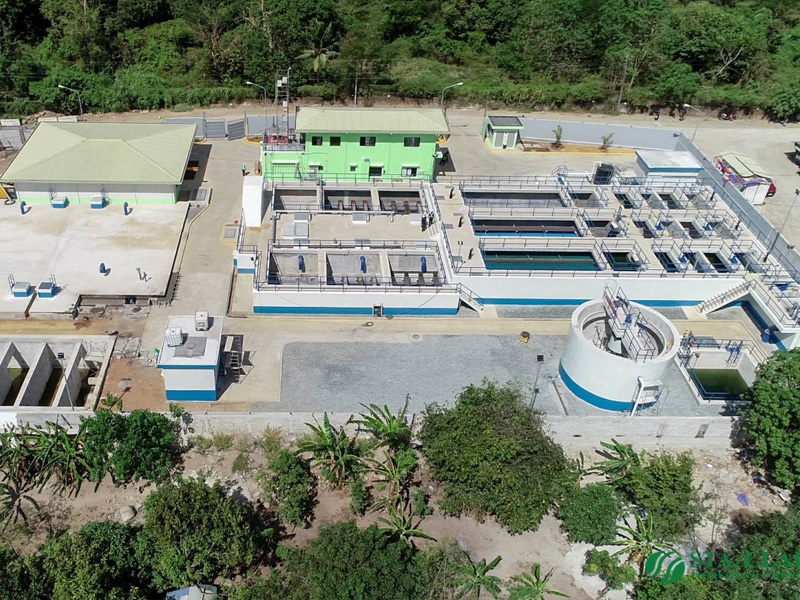A partner through change and extraordinary times

Six decades on, RCBC remains a reliable banking ally
The pandemic muted the sound of metal grinding as various industries practically came to a halt. The country’s gasping economy needed a resilient institution to pump life into its lungs, fuel to start up the engines of industry, and grease to turn anew the wheels of industry.
The banking industry was no match versus the dark schemes of the COVID-19 pandemic. But the sector was resilient enough to shield the worst impact on the economy. No less the leading global economists knew that the banking and finance sector could lay the groundwork in rebuilding businesses and the economy in general during this challenging time.
“The fallout from COVID-19 continues to challenge and disrupt economies around the world, but the banking and capital markets sectors can help steady the ship,” the prestigious World Economic Forum (WEF) declared.
Three major industry players were not spared from the ugly sludge of the pandemic but they were quick to get out of the mire with the help of a 60-year-old banking institution.
The Rizal Commercial Banking Corporation (RCBC) has supported and guided all kinds of enterprises — be it SMEs, emerging markets, and struggling industries — through the toughest of times. Some of its partners, who hurdled the 1997 Asian Financial crisis and 2008 financial crisis, didn’t only survive but even emerged victoriously.
Sojitz Philippine Corp.’s Former President and Country Manager Daisuke Ojima, Atlas Fertilizer Corp. (AFC) EVP and CFO Rolando Basco, Jr., and Sta. Clara International Corp.’s Nicandro Linao recall how their experiences with RCBC through the years cultivated relationships that could last a lifetime.
Achieving progress and growth with the right partner
Nichimen Corp. and Nissho Iwai Corp. have been in the business for over 50 years in the Philippines, merging in 2004 to establish Sojitz Philippines Corp. Combined, the two multinational trading companies aim to make Sojitz a high-caliber global enterprise.
RCBC was one of the elements that enabled the companies’ smooth transition.
 The Sojitz Group has been in the business of trading and logistics as well as non-ferrous chemicals for over 50 years in the Philippines. It further established its presence in the country through Sojitz Philippines Corp. in 2004. Released
The Sojitz Group has been in the business of trading and logistics as well as non-ferrous chemicals for over 50 years in the Philippines. It further established its presence in the country through Sojitz Philippines Corp. in 2004. Released“We have been committed to the Philippine market for over 60 years, and when I checked our company history, we started in the Philippines back in 1908 with an abaca business,” said Sojitz Philippines Corp. former president and country manager Ojima.
“RCBC has always been with us, supporting our businesses for over 50 to 60 years now. It does not only support Sojitz Philippines but the entire Sojitz Group of companies,” he added.
While they are in the business of trading and logistics and non-ferrous chemicals, Ojima opened that the company only experiences difficulties in arranging the uploading and unloading of products in foreign vessel-dedicated ports. While they are adjusting to the new normal, he owes the company’s steady growth to the hard work of its people and partners, including RCBC. Sojitz continued to enjoy seamless services in such areas as foreign exchange (forex) and loan processing.
“We are very much conscious about the situation, and there are some issues that we have to overcome. But I have to mention that during the initial stage of the pandemic and the tight lockdowns started, RCBC was very flexible and accommodating,” he shared.
“Before the pandemic, we had to submit physical copies of documents for our transactions. But since not all our employees could report to the office, RCBC presented us with flexible options,” he added.
Always reliable
Since 1957, Atlas Fertilizer Corp. (AFC) has been manufacturing various fertilizer grades. It became a wholly-owned subsidiary of Sojitz in 2004. The union combined AFC’s 57 years of local leadership in research and development, with Sojitz’s excellent business acumen and the Japanese highly-regarded discipline.
As a trusted brand, the fertilizer company now serves millions of rice, sugar, corn, and crop farmers in the country. In fact, it has created a mobile application where farmers can input information such as the location of farms and seeds to be used to receive a specific recommendation on fertilization technology.
 Atlas Fertilizer Corp. (AFC) has been manufacturing various fertilizer grades since 1957. The company’s products have helped the Filipino farmers maximize the yields of their plots of land, with AFC now serving millions of rice, sugar, corn, and crop farmers in the country. Released
Atlas Fertilizer Corp. (AFC) has been manufacturing various fertilizer grades since 1957. The company’s products have helped the Filipino farmers maximize the yields of their plots of land, with AFC now serving millions of rice, sugar, corn, and crop farmers in the country. ReleasedAFC and RCBC have been partners since 1968. The two have fortified their relationship during the hardest of times.
“AFC had some struggles in 1991, followed by the Asian Financial Crisis in 1997. Other banks left us but RCBC stayed,” Basco said.
When Rolando Basco was named Executive Vice President and Chief Finance Officer, the first thing he did was open a credit line with RCBC. “In my previous job, I had already dealt with the bank,” he confessed.
AFC, like other companies, was threatened with the pandemic. But he was optimistic that everything will improve with the help of its trusted partners like RCBC.
Rolando recalled that their logistics operations were stalled at the start of the quarantine, especially since they were not listed as “essential.”
AFC imports from China and moves goods to different islands in the Philippines. Unfortunately, the routes and certain regulations totally changed during the lockdown. But with COVID-19, the logistical processes became complicated. It required increased monitoring and additional expenses.
“RCBC has always been there. It’s a very reliable bank. They continue to support us even with the past and present financial crises,” he concluded.
Through thick and thin
Sta. Clara International Corp. (SCIC) humbly started its race in the construction industry in 1976. Now, it has ventured into the energy business.
Its president and chairman, Nicandro Linao, and his son Mike, believe that its partnership with RCBC was instrumental in the company’s success. Nicandro recalls that their relationship began during the early ‘80s, even before automated payroll was introduced.
Back then, check clearing in banks took a lot of time. But with RCBC, everything was fast, even opening accounts. And when SCIC barged into the big league so to speak the firm continued with the relationship with RCBC.
 Morong, Bataan. 25 MLD Water Treatment Plant, a project by Sta. Clara International Corp. (SCIC) completed in February 2020 under an EPC contract, supplies fresh and potable water to Subic Freeport (SBMA) and the town of Morong. SCIC is classified as a Quadruple A Company, the highest category given by the Construction Industry Authority of the Philippines (CIAP)’s Philippine Contractors Association Board (PCAB). It is one of the leading construction companies in the Philippines and has successfully ventured into the power sector business. Released
Morong, Bataan. 25 MLD Water Treatment Plant, a project by Sta. Clara International Corp. (SCIC) completed in February 2020 under an EPC contract, supplies fresh and potable water to Subic Freeport (SBMA) and the town of Morong. SCIC is classified as a Quadruple A Company, the highest category given by the Construction Industry Authority of the Philippines (CIAP)’s Philippine Contractors Association Board (PCAB). It is one of the leading construction companies in the Philippines and has successfully ventured into the power sector business. Released“The construction business requires a partner, a good bank partner to support it. During biddings, we need bonding requirements, performance bills, and performance bonds. And RCBC quickly responds to these kinds of requirements,” he added.
Today, Sta. Clara is classified as a Quadruple A company, the highest category bestowed by the Construction Industry Authority of the Philippines (CIAP)’s Philippine Contractors Association Board (PCAB). According to Nicandro, only a few out of the many competing companies have achieved such standing. They have also successfully forged partnerships and completed projects with major water concessioners, retail stores and more.
“I think without RCBC, we would not have reached this point,” the company’s father said.
Despite the pandemic, the Linaos remain optimistic. Mike, an engineer by profession, will soon stir the company to greater heights with his innovative ideas.
“I think we have a very good future despite what’s going on right now. We have very good partners like RCBC to support us. I see a very bright future ahead, especially in the construction industry, since there’s still a lot of building going on. We are also a major player in the renewable energy sector — the future will be utilizing renewable energy,” he said.
- Latest

























